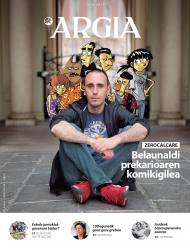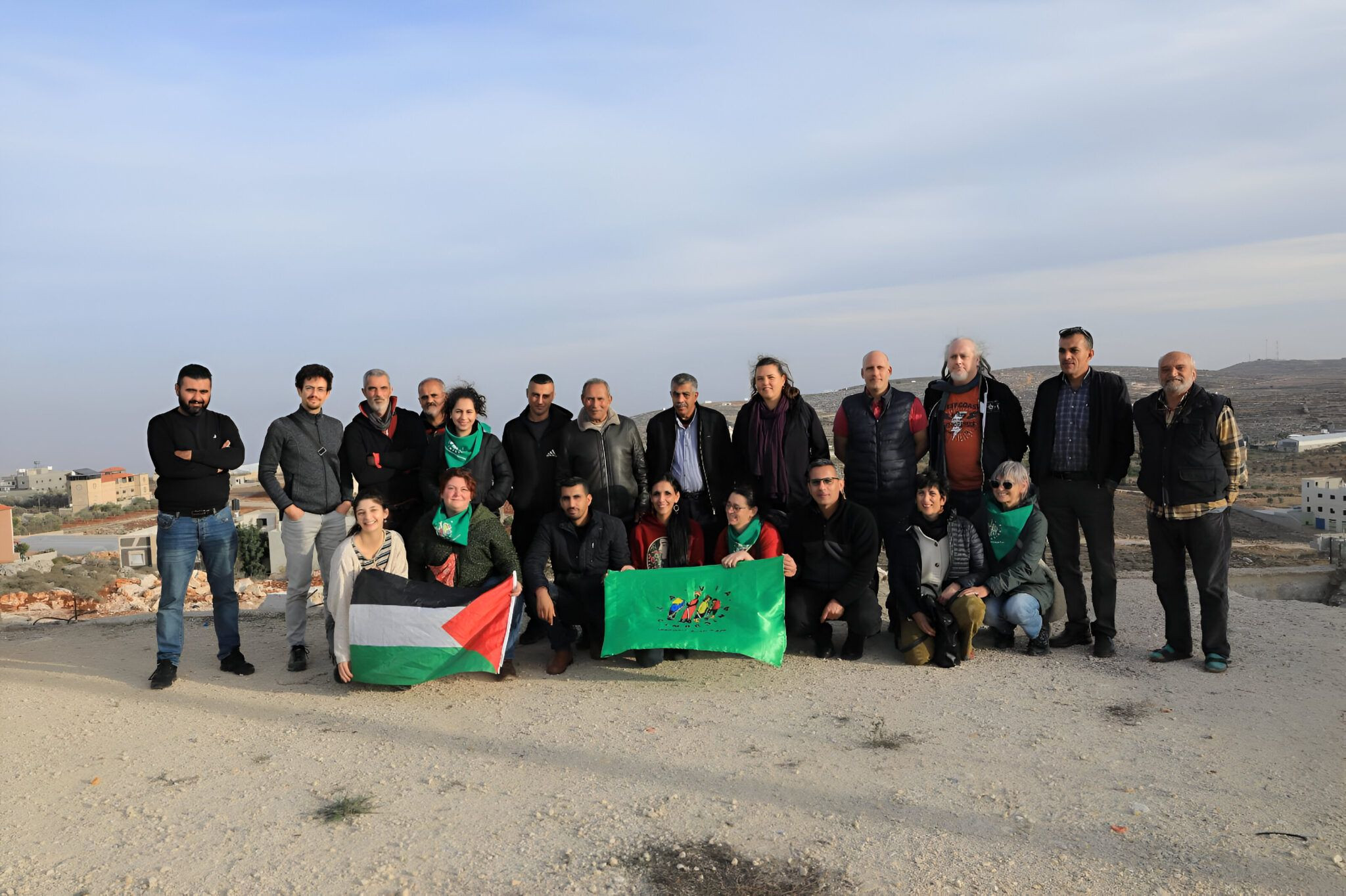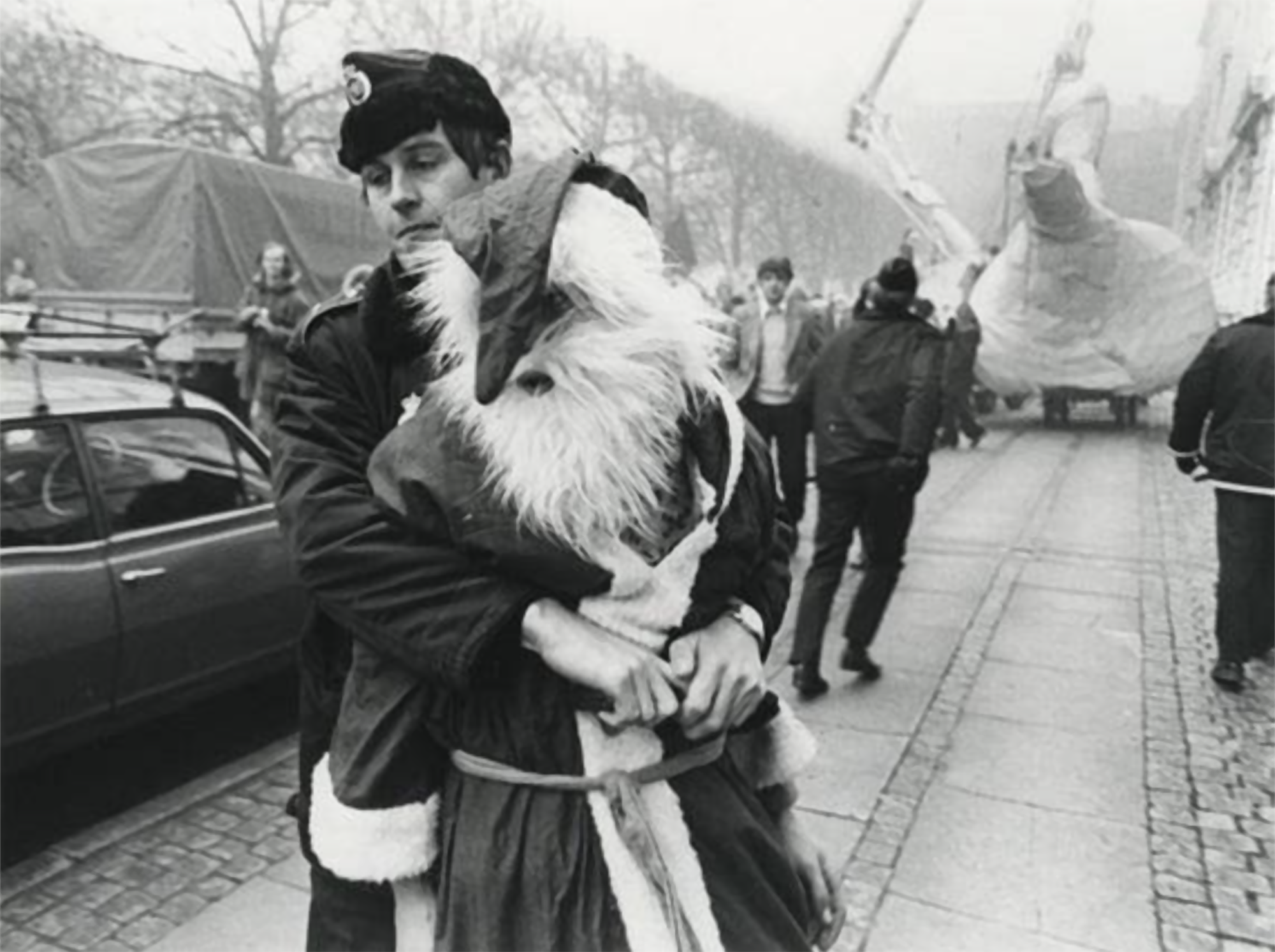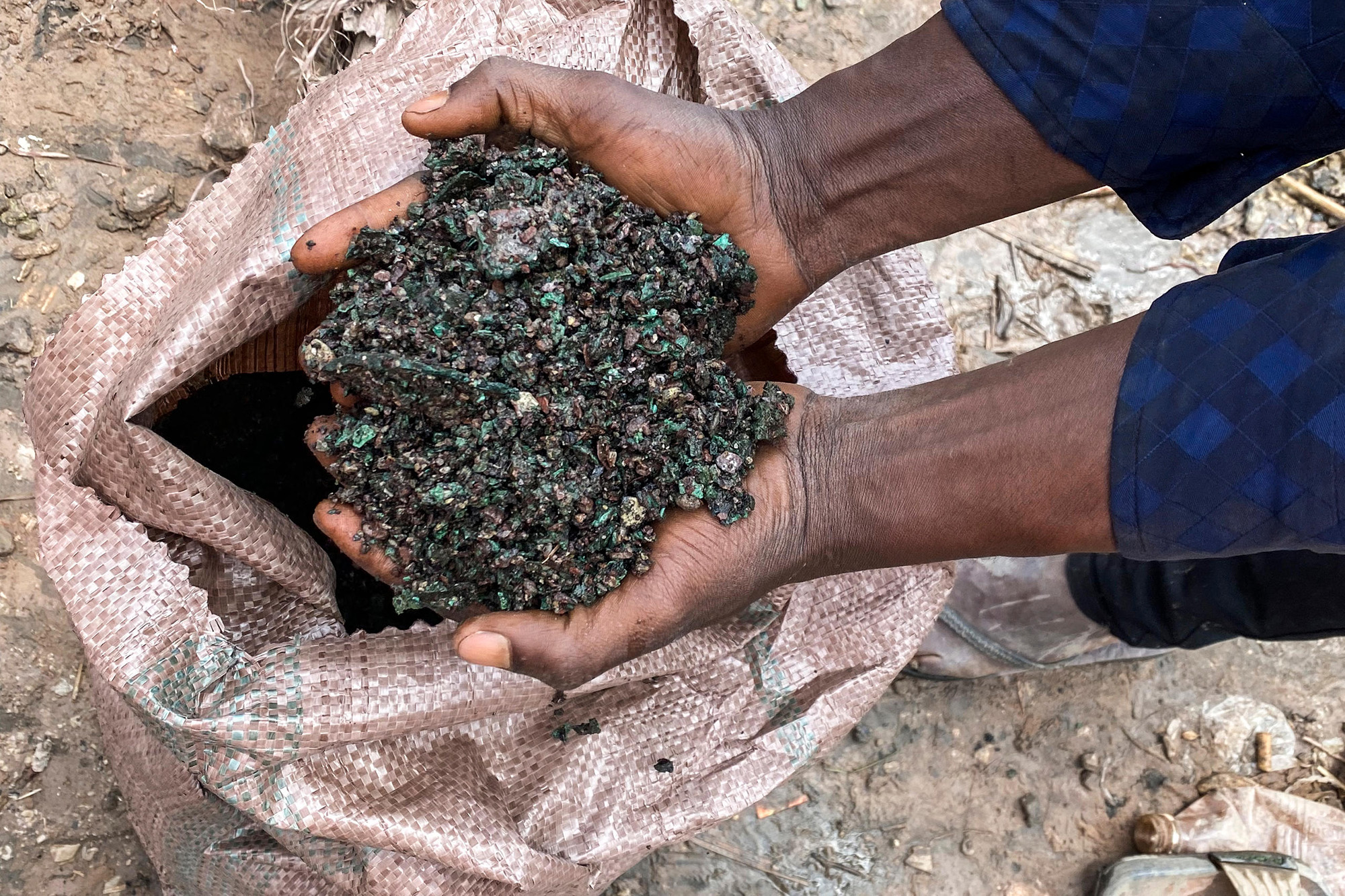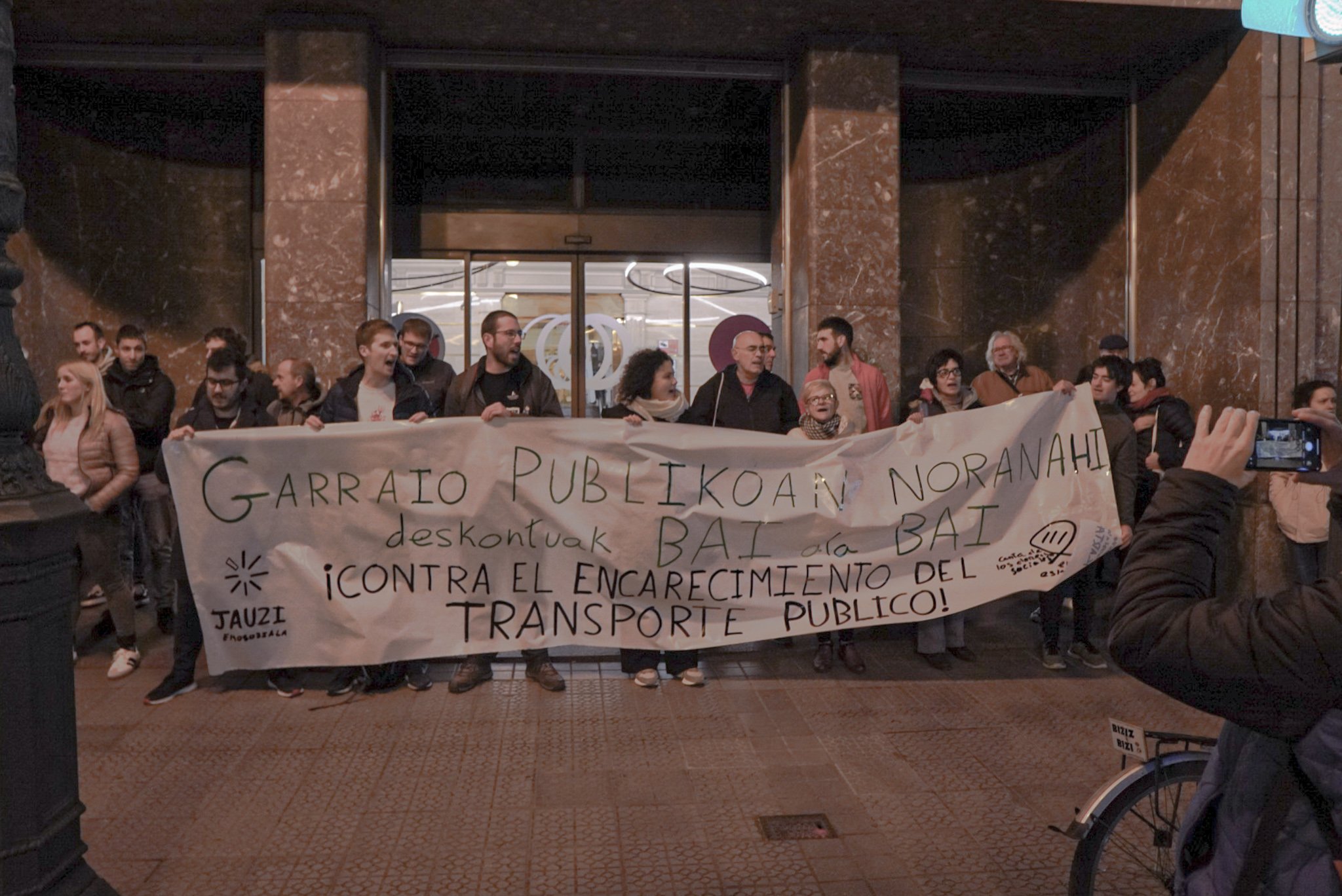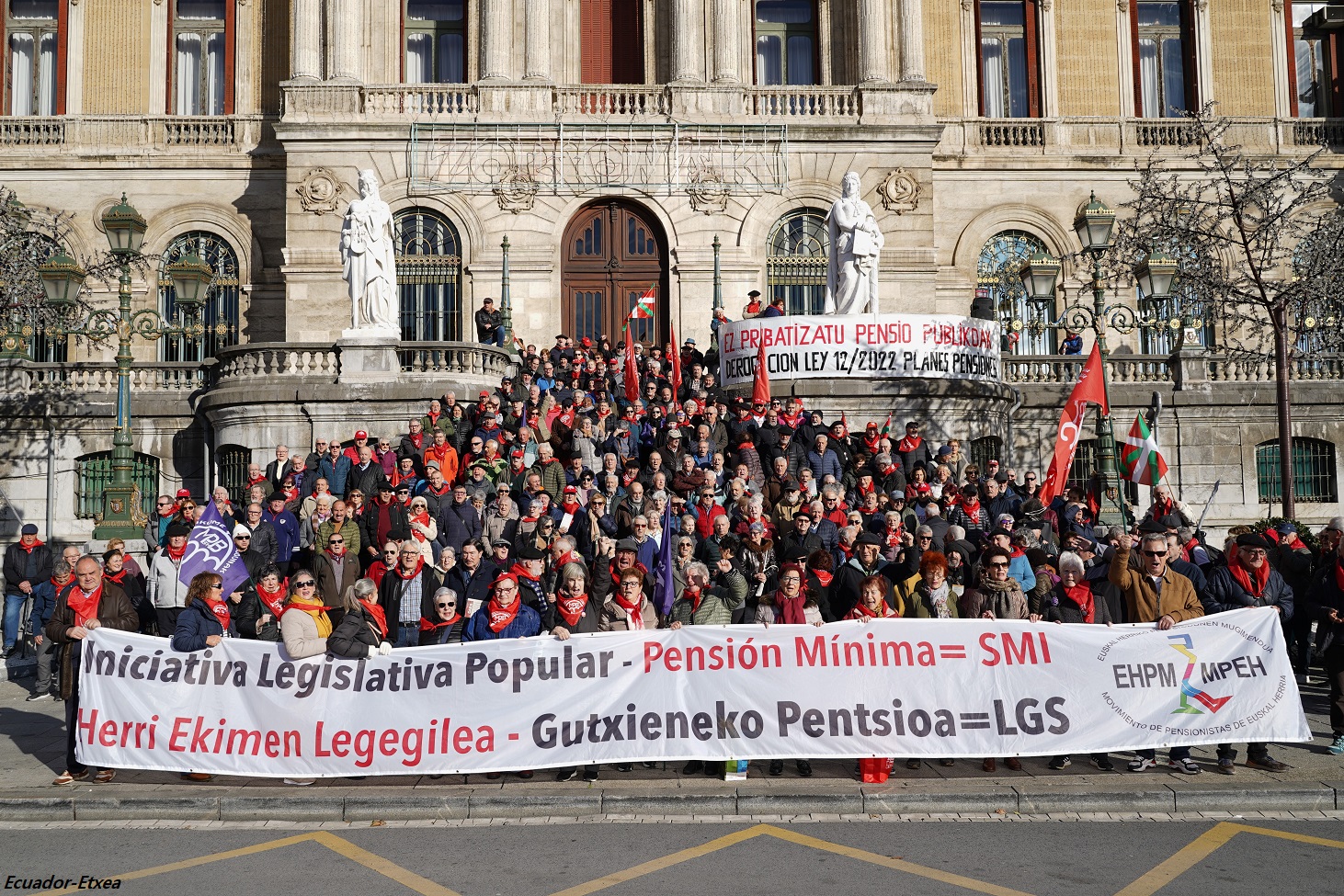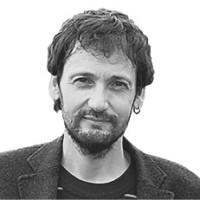Care for survival
- When we hear the word "Inude," in the 19th century, we are reminded of women who took care of the children of wealthy families in cities. Every year we remember those well-dressed women in our streets. But the reality was much more complex than we imagined in a festive atmosphere. We have analyzed the case of Hernani thanks to a scholarship from the Equality Area of the City of Hernani, and we have brought to these pages some brushes of the work that will soon see the light in book format.
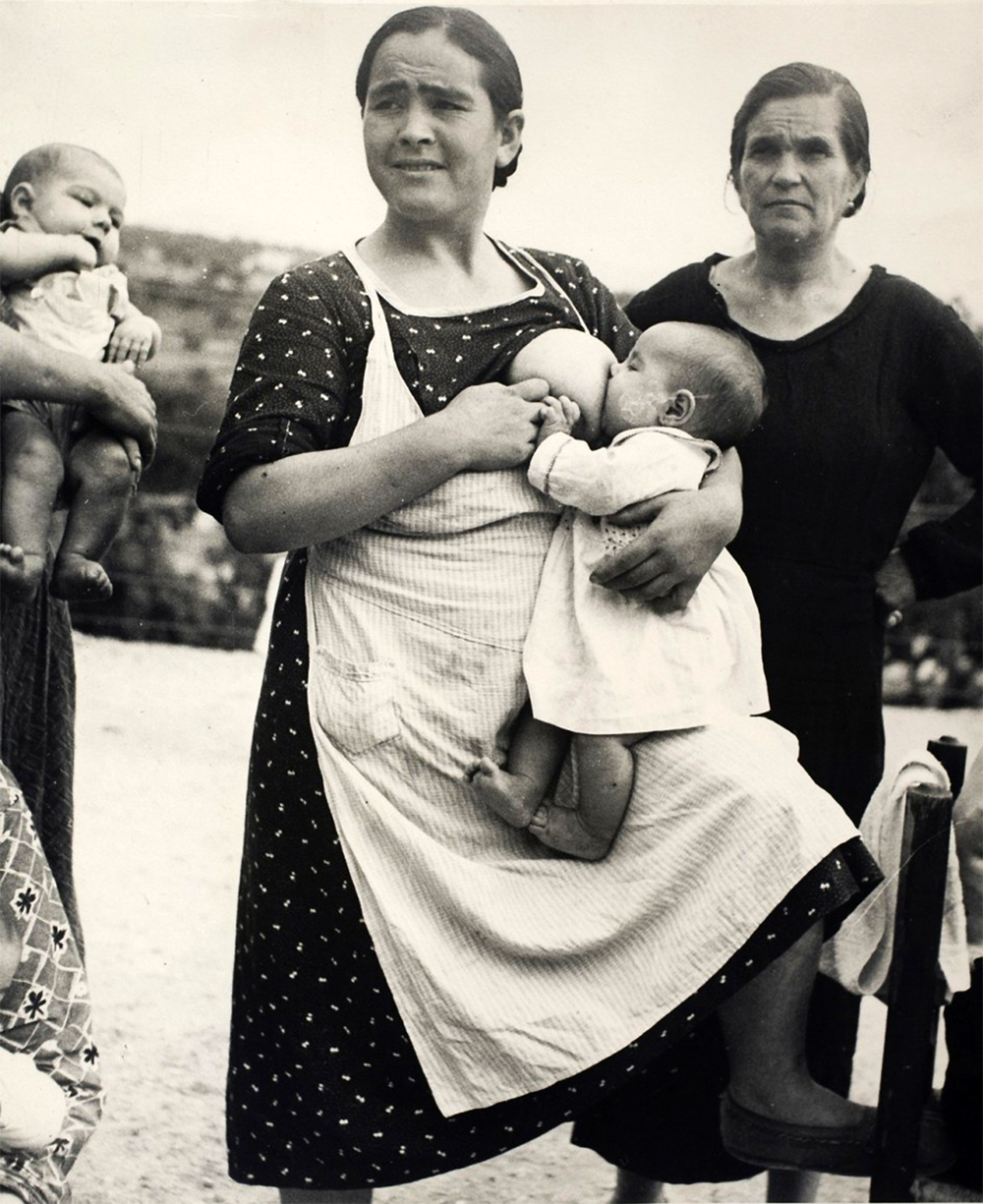
Women have always helped each other when there was a problem with giving milk to the newborn. When the mother had little milk, when the milk was removed because she was sick or could not breastfeed, she was helped by her neighbors. The surrounding community was of great importance when it came to pushing the little one forward. These examples can already be found in England in the 16th century and, thanks to oral sources, we know that this was the case until at least the 20th century.
Acting as a nurse has also been a source of income for many others, within the collective survival strategy. For the rich, nodriza at home was a way to differentiate from others, a class indicator. We know these nodrizas of the cities, but there are others forgotten by folklore, such as those who breastfed abandoned children, the foundlings, who, on the other hand, had a very important function until the middle of the twentieth century.
Mothers 'good' and 'bad'
In the 19th century the bourgeois classes and the “reformers” wanted to expand the nuclear model of the family. Thus, the man would be responsible for staying in the house and the woman had to limit herself to being a good wife. With medicine and hygiene in the mouth, they believed that the society that was “sick” should be cured through science. Thus, it focused on natural breastfeeding and the care of the biological child by the mother.
The nurseries questioned the categories of the time, although officially their mission was not considered a work, but witnessed their existence.
However, being a nurse at home remained a way to fatten the class line for the rich. And in the houses or in the working-class neighborhoods it was impossible to materially comply with the family model that capitalism had just imposed… Leave the field and factory work and dedicate itself to the care of the child?
The reality of the families was very different in the 20th century, as shown by the case of the nurse Eulalia Lizaso de Hernani. She was a widow and had a large family: she lived with six children born from the first wedding of which her husband was, with two other children and with her brother Isidro, besides having a child handcuffed at home. In total, there were eleven members in the farmhouse in 1940.
But the Christian morality and the bourgeoisie came with strength. For example, it was absolutely shameful to be a mother without getting married or out of wedlock, and the trend towards abandonment of newborns increased in the second half of the 19th century. In view of this situation, public institutions began to intervene. First, by the reduction of infant mortality, represented by the modern nations of the State, and second by the emergence of a new idea of motherhood that went from something that women naturally have in their being to something that can be learned.
The work of welfare houses that had previously been dependent on the Church was carried out by municipalities and councils and the houses of institutions or cots that cared for orphans were created, although they continued to have a deep Catholic tone. The wet-nurses were tightened and control over them increased, sharpening the regulations and dividing the wet-nurses into two groups: inside and outside.
.jpg)
The singles who had an “illegitimate” child were forced to be inside the cradle, believing that motherhood was going to “resurrect” them. On the contrary, external nurseries tended to be poor married women and, for them, the care of handcuffed children was another source of income; in addition, often this child began to work at home or in another trade. In Hernani, for example, between 1900 and 1944, 25 children were returned to the cradle of Fraisoro de Villabona, cared for by external nurseries, only 18.51% of the total, while the rest were considered children by the families.
The wetlands were incapable of surviving: the “salary” perceived in return was very low and you could not have the pot full of childcare; for example, the day that the Council of Gipuzkoa paid every three months to the baby cots was one of the lowest in the labor market. The management's attitude was a little hypocritical, requiring measures to change the model, but did not change the nurse's material conditions.
This deficient practice generated a negative stereotype of wetness in society. Although for the bourgeoisies of the cities the fact of having the nurse at home was a sign of prestige, the nursery that took care of the children was nothing more than low-class servants. However, these wet-nurses were given a higher status than the wet-nurses who took care of abandoned children. The latter, besides being poor, took care of the shame of society: abandoned children or furry children, that is, children who were born out of wedlock.
The capitalist scheme is questioned
The nurses were the expression of a paradox: their existence clashed with the idea that hygienists, a liberal movement concerned with health, separated the productive from the reproductive. According to this theory, the economic support of the family corresponded to the men, while the women were in charge of caring for the house, outside the statistics. And what were the suckers? Where were they located in this scheme of the public and private sphere?
The nurseries questioned these categories of the time, although officially they were not considered works, because they witnessed their existence: It was a reproductive work that the Council itself had paid for. So, monetarised yes, but not recognised as employment.
.jpg)
This has only tarnished their memory: the activity of the wet-nurses, which was out of all official records, has no trace in the official censuses, although in the case of people who took care of abandoned children in the nursery worked for the public administration. It was not considered a profession. Maybe because it was a resource that started breastfeeding from the body? Only women could play their part, incidentally. However, the work of wet-nurses was not limited to breastfeeding, but included another cultural dimension, such as the networks of mutual support among women.
disappearance of a profession
As maternal essentialism increased, the most uncomfortable group began to be the nurse nurse. The solidarity networks and, above all, the figures that broke the neoclassical economy were apparently left over in the industrialization society in the mid-twentieth century. By then there had been many transformations: the expansion of cities, the expansion of transport, the decline of traditional and rural life, the great migrations...also the predominance of the bourgeois family model with fewer members.
Although the stigma of motherhood outside marriage did not completely disappear, the mentality that imposed that women had to take care of their biological child at all costs was stronger. Thus, the drop-out rate was significantly reduced and cots were evicted.
Formula milk also became popular in those years, which made the woman who had breast milk no longer essential to feed the newborn baby. Lactation definitely left the market to be included in the list of women's household chores and the role of wet-nurses was endangered.
1936ko Gerra aurrean eta ostean bi aldiz inude izan zen Anttoniren [ezizena] historia da honakoa. Tolosatik gertu, baserrian zuen bizibidea, senar eta bost haurrekin, beste emakume askok bezala, berak zeraman baserriko lanen zama, haren iloba Ihintzak kontatu digunez.
Behin, ondoko herrian pilota partida jokatzen ari zirela, jokalarietako bati pilotak lokian jo eta ziplo erori zen: frontoian bertan seko geratu zen gizona. Hildakoa ezaguna zen, herriko medikua izanagatik, eta haren alargunak bi seme eta alabarekin egin behar izan zuen aurrera, baina bularra erretiratu zitzaion trantzearen ondorioz; esnea moztu.
“Hori gertatu al zain? –galdetu zion Anttonik jazotakoa kontatu ziotenean– Ekarri ezan, nik haziko dinat”. Eta hala, bere umearekin batera bular oparoetatik eman zion esnea jaoberriari. Hasieran hilabete batzuetako kontua zena, azkenerako ia bi urtez izan zuten etxean ondoko herriko medikuaren eta haren alargunaren haurra. Anttonik elkartasunez egin zituen inude lanak, beharrak eskatuta eta bularrek emandako baliabideari probetxua ateratzeko.
Gero, gerra ostean, Fraisoroko sehaska etxetik beste haur bat ekarri zuen: Joakin. “Ahal zuenak alde egiten zuenez”, haren amak ere gauza bera egin zuen, Argentinara egin zuen ospa; baina bi seme utzi zituen Fraisoron, ezezagunak zaizkigun arrazoiengatik. Haur esposito bezala hartu zituzten Gipuzkoako familia banatan bi anaiak, eta nagusitu ziren arte ez zuten elkarren berri izan.
Anttonirentzat dirutxo bat gehiago ekartzeko abagunea zen inude izatea. Baina denborak aurrera egin eta Joakin semetzat hartu zuten azkenean. Hala ere, mutikoak izaera menderakaitza erakutsi zuen baserrian gazte-gaztetik, “…ez soroan, ez ganaduan, ez morroi…”, ihes egiten zuen sarritan. Hernanira ere eraman zuten, Anttoniren ahizparenera, baina alferrik, alproja deitzen zioten. Harik eta 22 urte ingururekin jakin zuen arte haren ezinegonaren zergatia: ez zen familia horretan jaioa.
Behin eta berriro joan zen Fraisoroko artxibo eta liburuak arakatzera eta anaia aurkitu zuen, baita Argentinatik bueltan Madrilen bizi ziren ama eta arreba ere. Halaxe baretu ahal izan zuen barruko arra, txikitan abandonatu izanak bizitza baldintzatu zionaren kontzientzia hartu zuenean.
Copenhagen, 18 December 1974 At 12 noon a ferry arrived at the port, from where a group of about 100 Santa Claus landed. They brought a gigantic geese with them. The idea was to make a kind of “Trojan Goose” and, upon reaching the city, to pull the white beard costumes... [+]
Budgets and the closure of annual accounts are nothing more at this time, from the domestic economy to most of the socio-economic spaces that we share. Large companies have begun to extract calculators and implement major plans for 2025. Small and medium-sized institutions and... [+]
The Centre Tricontinental has described the historical resistance of the Congolese in the dossier The Congolese Fight for Their Own Wealth (the Congolese people struggle for their wealth) (July 2024, No. 77). During the colonialism, the panic among the peasants by the Force... [+]
On 5 December last, pp presented in the Parliament of Navarra a proposal for a law to decouple the processes of functionalization of the Secretariat and Intervention positions of the local entities of Navarra. If this were to happen, about 30 people would achieve well-deserved... [+]
Entrepreneurship is fashionable. The concept has gained strength and has spread far beyond economic vocabulary. Just do it: do it no more. But let us not forget: the slogan comes from the propaganda world. Is the disguise of the word being active buyers? Today's entrepreneurs are... [+]









